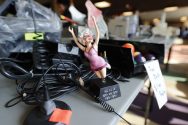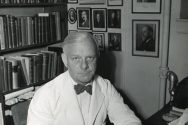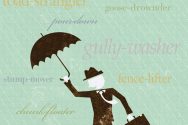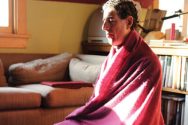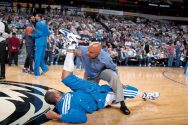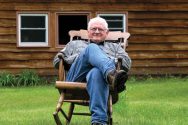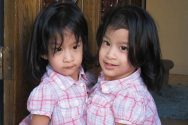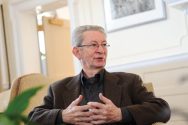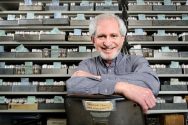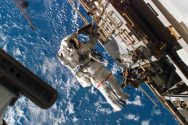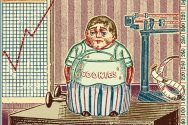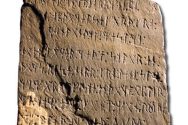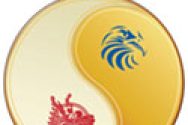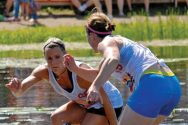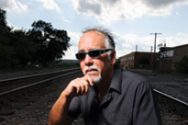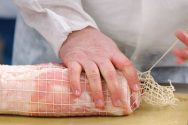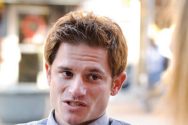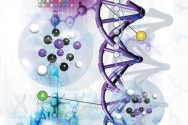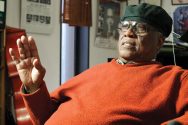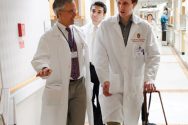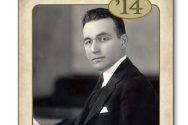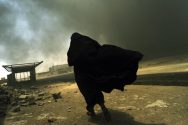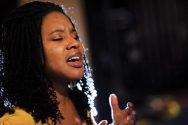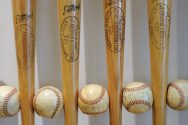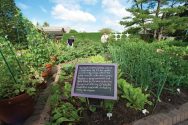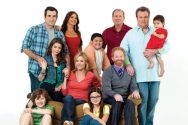Tom Schultz ’76 never dreamed he’d become a painter — but thanks to him, birdwatchers everywhere are able to identify their feathered friends.
Features
401 stories. Showing page 12 of 14.
Creative ideas and a supportive campus culture are helping more and more students embrace the entrepreneurial spirit.
He used novel techniques to eradicate syphilis in Wisconsin. He identified PTSD long before it had that name. Professor Hans Reese was a man ahead of his time.
From A to Z, the Dictionary of American Regional English reaches its goal.
A leading UW researcher says everyone has an emotional style — and you can train yourself to change.
Memorial Library bids an overdue adieu to its card catalog.
This former sprinter now trains pro basketball players — and has a track record for results.
Name any topic pertaining to Wisconsin life and culture, and prolific author Jerry Apps ’55, MS’57, PhD’57 has probably written about it.
Doctor Gary Hartman has become a world expert in the esoteric specialty of conjoined twins.
In his second term at the helm, Interim Chancellor David Ward isn’t sitting idly by.
It took multiple bus rides for a young Barry Ganetzky to attend college classes each day. That same singlemindedness has nourished the UW researcher’s longtime career, pushing him to study tiny creatures and find ways to treat human disease.
When three UW alumnae get to work each day, it’s all about astronauts and space suits and an evolving partnership with Russia to explore the universe. How cool is that?
Barry Popkin sees the struggle against food policies and marketing practices that promote excess weight as nothing less than a battle for human rights.
James Frankki scours stones for evidence that proves America’s Viking past — or maybe not.
There’s a lot of muscle behind the magic that transforms the Kohl Center from a basketball arena to a hockey venue.
As China gains prominence on the world stage, the university strengthens its connections.
With the threat of Huntington’s disease hanging over her, Shana Martin lives life out on a limb – or at least a log.
To earn your red and white stripes, you need to know a few things about Wisconsin traditions and rituals, past and present.
Fred Gardaphé ’76 knew that if he didn’t get out of the Mafia-dominated neighborhood where he grew up, he could wind up dead. UW–Madison provided a way out.
This new program teaches the art and science of working with meat.
His life was a downward spiral until JD Stier ’04 and a persistent teacher saw a way out.
Does genomics hold the secrets for the future of medicine? Eric Green believes it does — and that Bill Gahl is showing the way.
When Richard Davis teaches, his words are like the notes he plays, flowing effortlessly from topic to topic, as he explains music and so much more.
Eight other medical schools turned Tim Cordes MD’04, PhD’07 down flat, but the UW said yes — and discovered a remarkable physician who earned “student of the year” honors, created his own biochemistry software, specializes in addiction, and happens to be blind.
Who are the UW’s all-time awesomest alumni? On Wisconsin picks its list of greatest grads (and even one non-grad) in fields ranging from agriculture to technology.
Lynsey Addario’s recent capture by Libyan forces was just the latest in a series of perils for this frontline photojournalist. But she’s never let danger stop her from bringing her unique perspective to coverage of conflict and humanitarian issues.
These seven students are becoming diploma-carrying Badgers this year, joining the ranks of more than 380,000 UW-Madison alumni around the world. They have a firm grasp of reality — but also an inspiring take on what’s to come.
Bud Selig looks back on his career, and ahead to a return to Madison, considering it all through “the retrospect of history.”
Despite the hurdles, campus dining facilities are incorporating locally grown foods.

